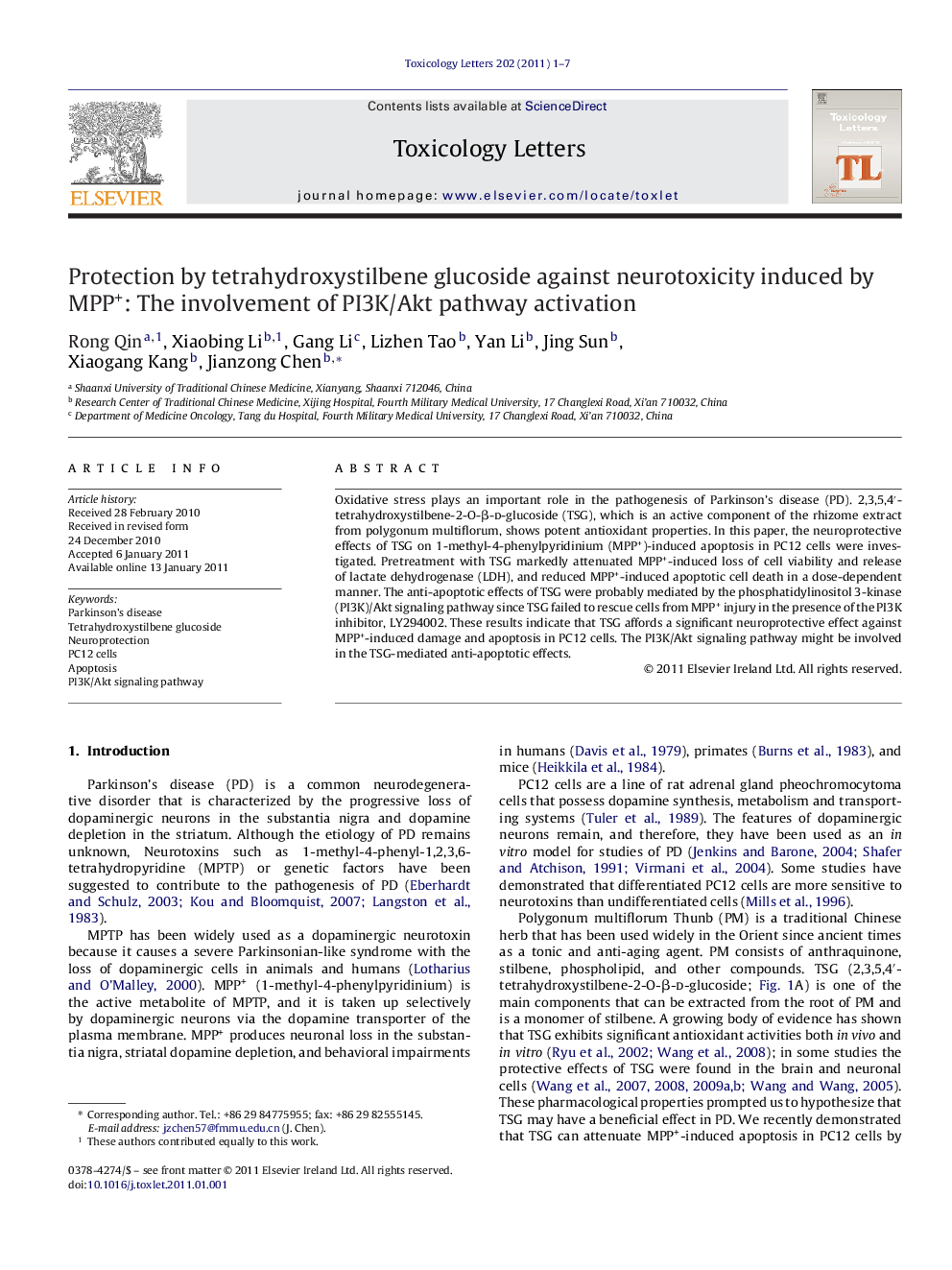| Article ID | Journal | Published Year | Pages | File Type |
|---|---|---|---|---|
| 5860782 | Toxicology Letters | 2011 | 7 Pages |
Abstract
Oxidative stress plays an important role in the pathogenesis of Parkinson's disease (PD). 2,3,5,4â²-tetrahydroxystilbene-2-O-β-d-glucoside (TSG), which is an active component of the rhizome extract from polygonum multiflorum, shows potent antioxidant properties. In this paper, the neuroprotective effects of TSG on 1-methyl-4-phenylpyridinium (MPP+)-induced apoptosis in PC12 cells were investigated. Pretreatment with TSG markedly attenuated MPP+-induced loss of cell viability and release of lactate dehydrogenase (LDH), and reduced MPP+-induced apoptotic cell death in a dose-dependent manner. The anti-apoptotic effects of TSG were probably mediated by the phosphatidylinositol 3-kinase (PI3K)/Akt signaling pathway since TSG failed to rescue cells from MPP+ injury in the presence of the PI3K inhibitor, LY294002. These results indicate that TSG affords a significant neuroprotective effect against MPP+-induced damage and apoptosis in PC12 cells. The PI3K/Akt signaling pathway might be involved in the TSG-mediated anti-apoptotic effects.
Keywords
Related Topics
Life Sciences
Environmental Science
Health, Toxicology and Mutagenesis
Authors
Rong Qin, Xiaobing Li, Gang Li, Lizhen Tao, Yan Li, Jing Sun, Xiaogang Kang, Jianzong Chen,
